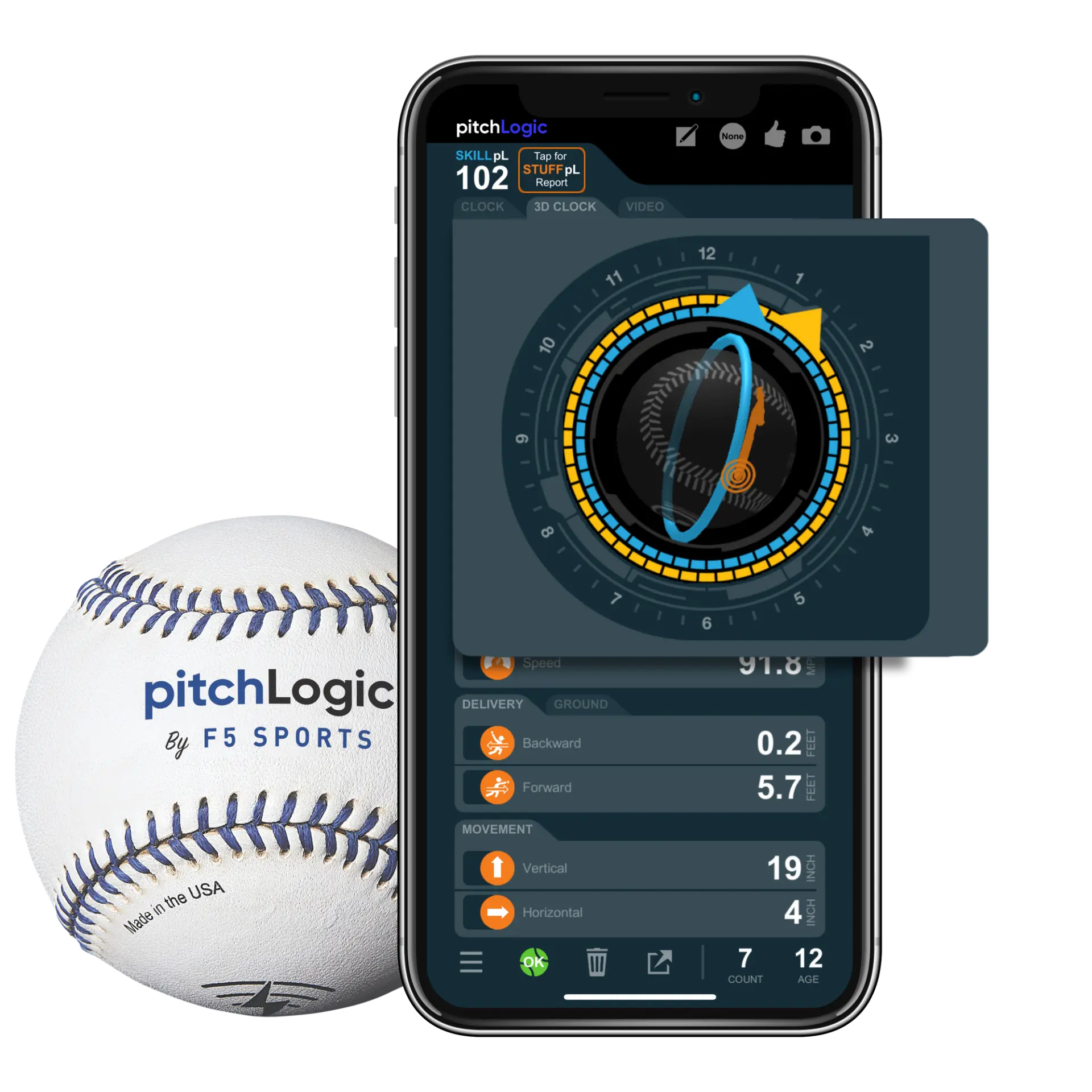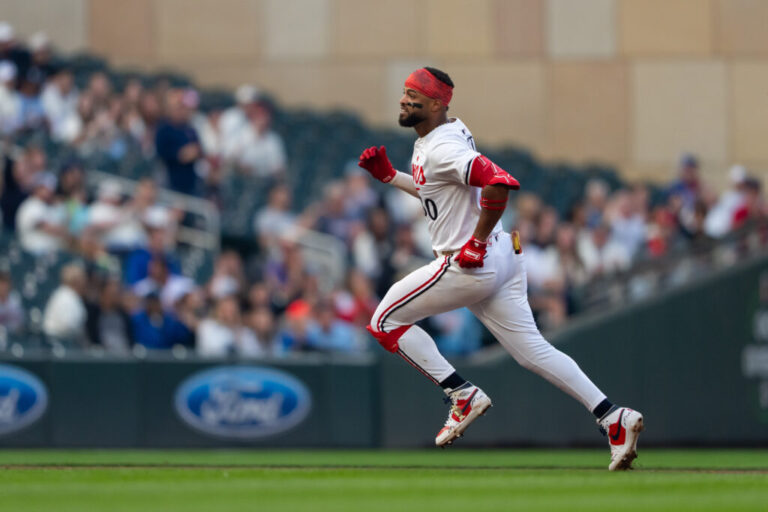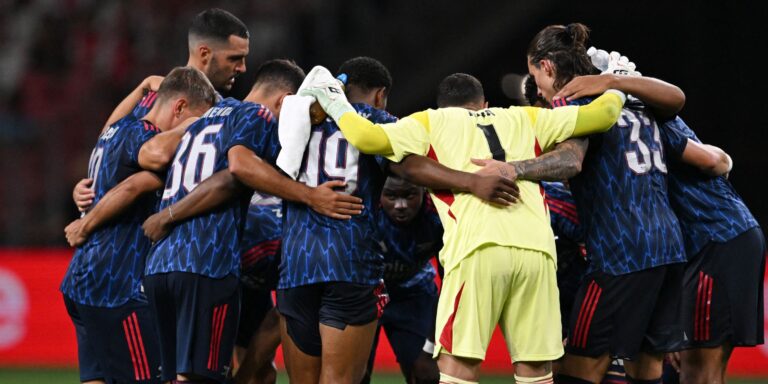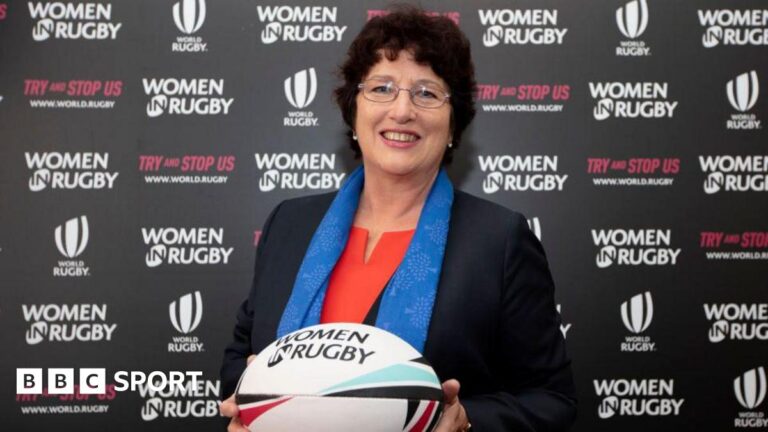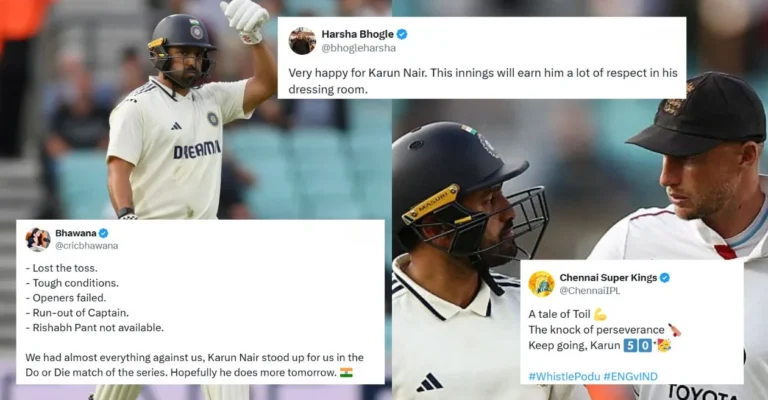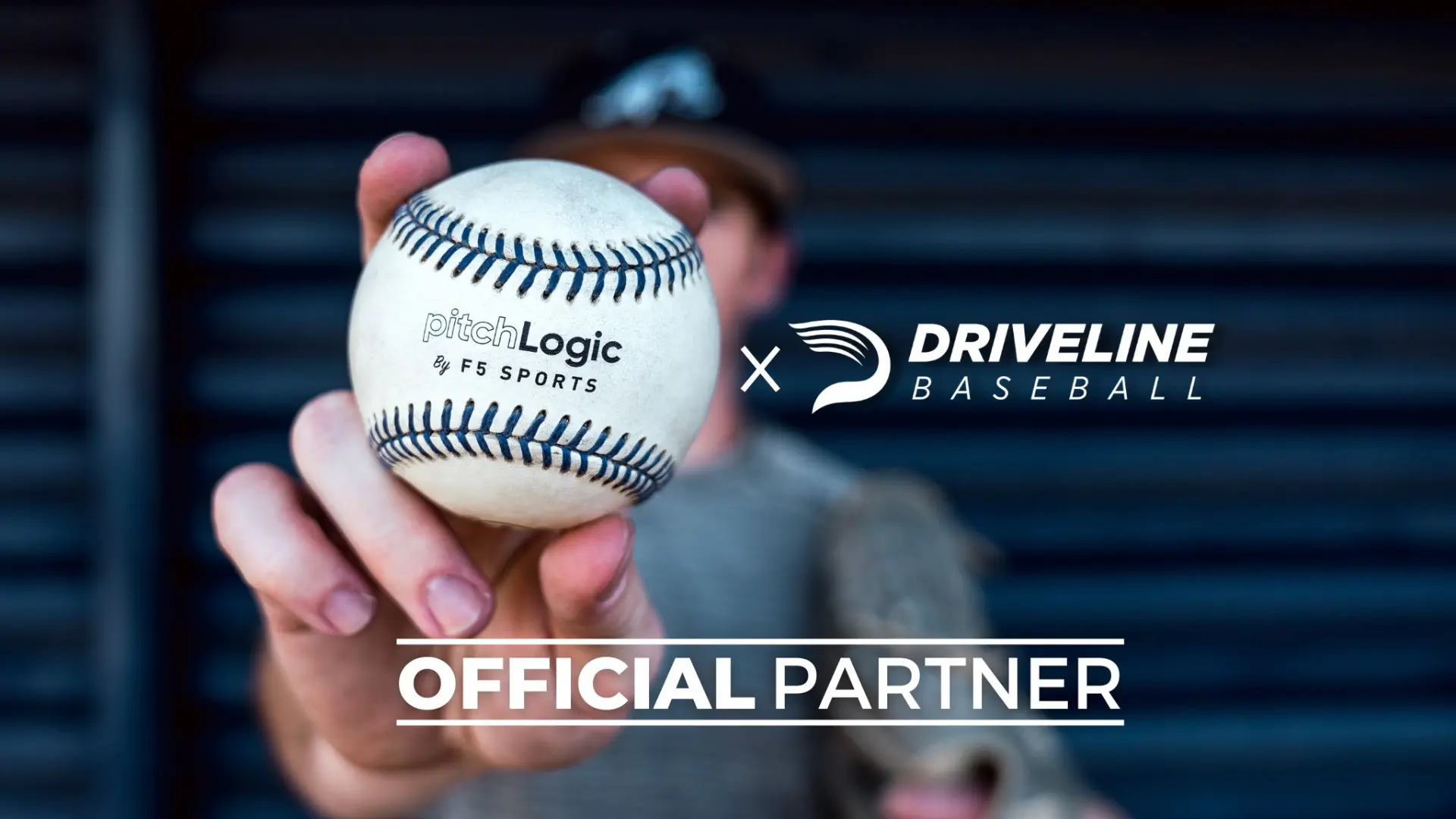
A few months ago, F5 Sports and Driveline Baseball partnered to give athletes a chance to pair the pitchLogic ball with Driveline Online Pitching. In the months since we have started to build out reports and refine strategies to help athletes around the world get the same world-class pitch design feedback that they would encounter in-gym.
In pursuit of becoming the most data-driven remote training product on the market, we have come away with some impressive takeaways.
But first, a refresher…
What is pitchLogic?
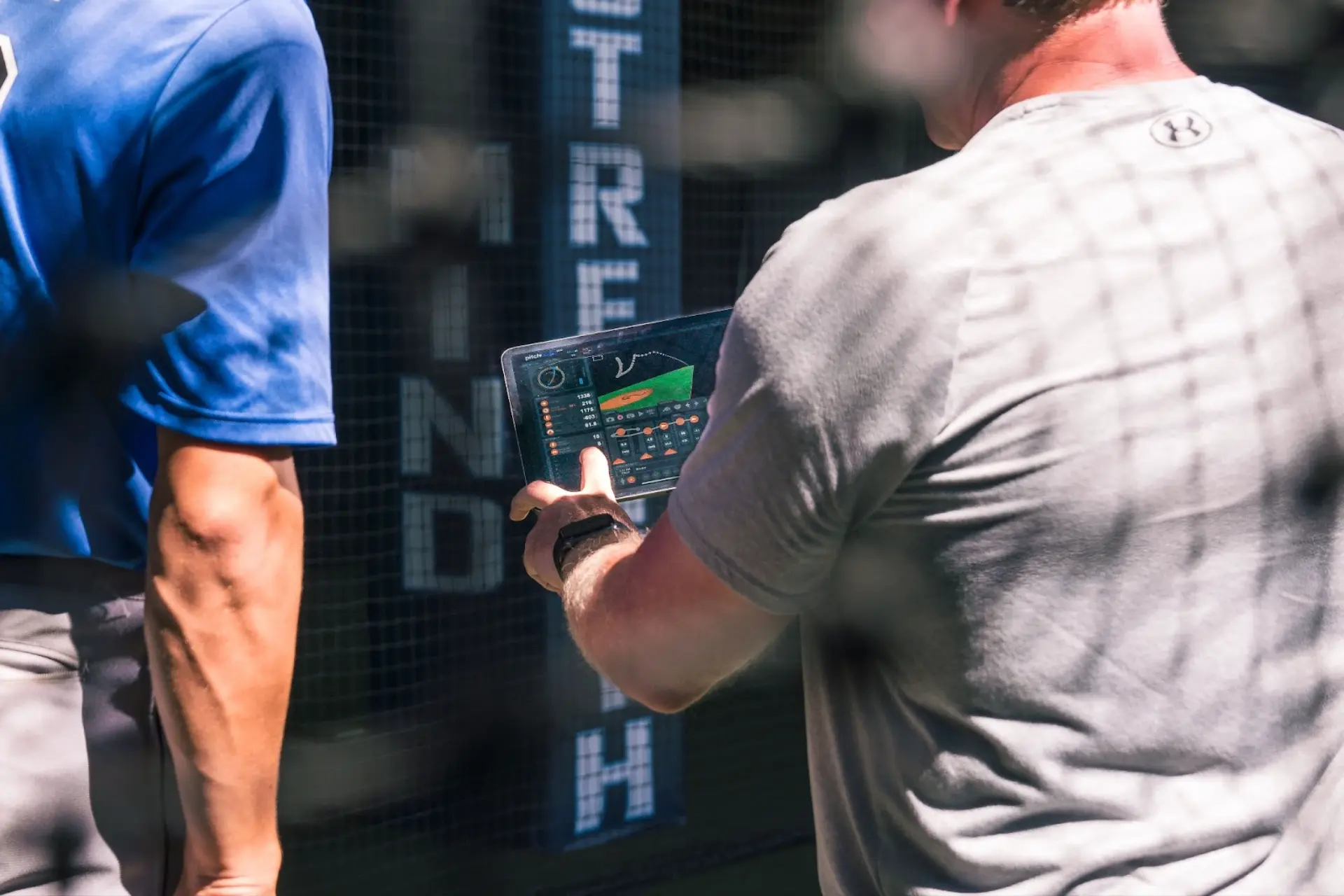

PitchLogic is a “smart” baseball that uses an Inertial Movement Unit (IMU) to track ball flight for its users. Pitchers can get feedback like velocity, movement, spin rate, and extension.
The most profound advantage to using pitchLogic when comparing it to its competitors comes in its cost. Many similar units cost several thousand dollars to obtain similar information and are often unattainable for younger athletes.
We are often asked about the intricacies of how each pitch-tracking system ends up tracking pitch movement metrics. A simplistic way of viewing this comes in understanding observed versus inferred ball flight metrics.
Inferred ball flight metrics are captured by taking a snapshot of a pitcher’s release point and then projecting what the movement of that pitch would look like. This is usually seen in units like Rapsodo.
Observed ball flight metrics track the whole trajectory of a pitches descent toward home plate and then gives the user a reading. Units like Trackman fall into this category.
The use of an Inertial Movement Unit (IMU) is quite unique in comparison to other units. Instead of tracking ball flight, the pitchLogic uses the amount of force imparted on the ball to provide its feedback. Though different than other units, Samford’s Center of Sports Analytics’ initial testing of the pitchLogic showed promising results when compared to Rapsodo’s 2.0 pitching unit.
Pairing PitchLogic with Driveline Baseball’s Online Training
Recently, the Research & Development team at Driveline Baseball has been hard at work producing actionable reports to summarize and quantify your training with pitchLogic. Now with the help of TRAQX and EDGE, you can take two simple steps to get a post-action report from your session.
- Connect your pitchLogic account to TRAQ
- Run an EDGE report for the dates in which your training session was executed on
With those simple steps you can gain insights like:


How your current arsenal grades against your peers via our pitch model known as Stuff+


Recommendations on how you could adjust your arsenal for maximum effectiveness




And different grips, cues and tips to help take your arsenal to the next level
Developing Platoon Neutral offerings with Justin Silva
A few online athletes have been diligent in their use of pitchLogic to gain a better understanding of their arsenals. Advantage Plan athlete Justin Silva sticks out for his insatiable desire to improve every facet of his game. After getting a pitchLogic ball, Justin threw a lower-intensity session to test out the after-action reports.








After showing him how to run the reports, we started evaluating how his arsenal could be shaped in the future.
Upon an initial investigation, the slider stood out as an above-average pitch. The ability to maximize horizontal break near a 9:00 axis was a good sign that this pitch was above average and did not need to be touched.
An often overlooked quality is adding sweep (horizontal/glove slide break)
The graph below below shows this might be the best bang for your buck when creating that nasty slider
— Matthew Kress (@m_kress__) March 10, 2022
Going forward our biggest focus would be holding the vertical plane while maximizing the maximum amount of horizontal break possible.
Spin efficiency is the percentage of spin that contributes to a pitches movement
In some cases adding sweep inevitably means an increase in spin efficiency (pic 1)
However using that potential for movement to add depth (-VB) shows no correlation to stuff+ (pic 2) pic.twitter.com/C9ZAkvbZki
— Matthew Kress (@m_kress__) March 10, 2022
The one glaring weakness of the slider was its proclivity towards getting right handed hitters out, but struggling against left handed hitters. Something referenced by one of my favorite articles of 2022 by Ben Clemens.
The trade off many are running into w/ Sweepers:
👍 swing and misses to RHH
👍more soft contact v. RHHSweepers generally struggle:
👎 V. LHH
👎 command@_Ben_Clemens article below does a fantastic job of outlining the issues sweepers run into— Matthew Kress (@m_kress__) October 12, 2022
This led us to hypothesize different strategies to attack left-handed hitters in the upcoming season. The two pitches that stood out the most here were a cutter and a changeup due to their ability to get opposite-handed hitters out (platoon neutral).


From @LanginTots13 Pitching Analytics course


With a new cutter and old changeup grip Justin went into his next training session with a clear idea on what we were attacking.


After some tinkering, the next session showed us that the changeup had a considerably higher ceiling than the cutter. Therefore, we moved forward with using the changeup as a platoon-neutral pitch to attack left-handed hitters.
How can pitchLogic/ Driveline Baseball help your career?
Driveline Baseball’s partnership with F5 sports is another example of our never-ending mission to give athletes the most data-driven perspective on their careers.
The chance to pair this piece of technology with a remote trainer is the perfect combination of data and coaching that Driveline Baseball prides itself on. This is the most comprehensive remote training product on the market!
